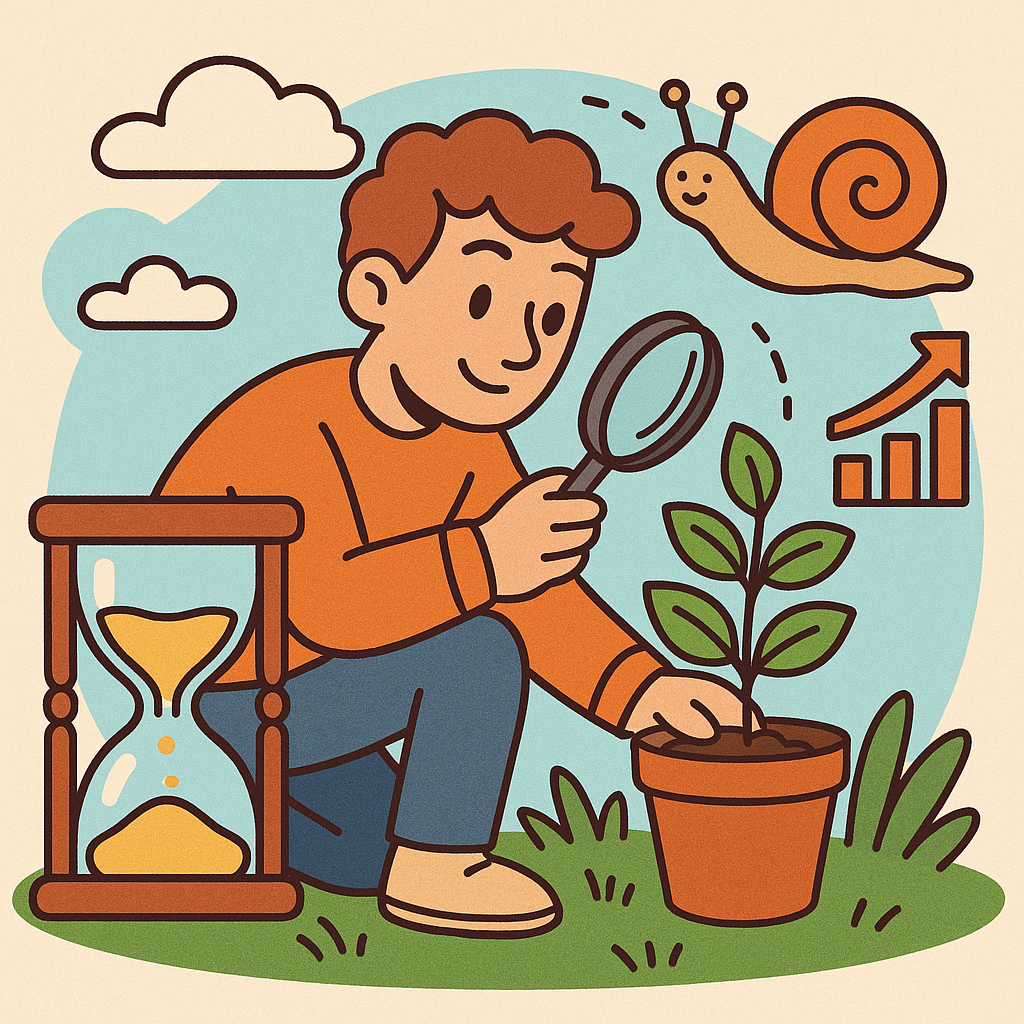In a world obsessed with fast metrics and instant feedback, slow data collection offers a refreshing shift—slow data collection is emerging as a powerful way to understand ourselves with depth, intention, and lasting impact.

Why “Slow Data Collection” Matters for Personal Growth
Most people equate data with speed—step counters, real-time dashboards, instant reports. But personal growth doesn’t happen overnight. Slow data collection refers to gathering personal insights gradually, over weeks, months, or years. This method avoids hasty conclusions and allows richer self-understanding.
By tracking habits, emotions, and reflections slowly:
- You can spot meaningful trends rather than fleeting spikes.
- You build resilience through consistent, small adjustments.
- You gain deep awareness by reviewing your own patterns.
These long-arcs of data collection become a mirror to your evolving self.
What Experts Say
Embracing Slow Over Fast Data
Econsultancy highlights that in business contexts, “slow data… lets you identify and analyse trends… and take stock of performance ‘in the round'”. In personal development, this applies even more: only steady observation reveals genuine growth.
Psychology researchers proposing a “slow data public health” argue for prioritizing better over more data, emphasizing quality, context, and timeliness rather than volume. That same approach holds when you collect data on yourself—better to track consistently than obsessively.
Proven Methods: Journals, Diaries & ESM
1. Gratitude Journals
Research shows that a weekly gratitude practice increases optimism, sleep quality, and goal achievement more than daily overuse. The weekly pace keeps the act meaningful and sustainable—a key principle of slow data.
2. Experience Sampling Method (ESM)
Also known as ecological momentary assessment, ESM prompts you to check in multiple times per day—capturing your thoughts and mood in the moment. Over time, this longitudinal diary-style method yields rich insights.
3. Written Life Journaling
Life writing research reveals that consistent journaling promotes self-awareness, emotional stability, and sense of identity. The process lets you slow down, observe, and connect complex feelings over time .
How Slow Data Fuels Real Growth
A. Increases Awareness, Decreases Impulses
Slowing your rate of data intake fosters reflection. Instead of reacting, you notice patterns and choose actions. That shift cultivates deeper self-control.
B. Supports Long-Term Goal Alignment
Personal growth is rarely instant. Slow data—collected steadily over weeks—marks real progress in areas like exercise, mindset shifts, or stress reduction. It lets you reorganize goals based on true evidence.
C. Strengthens Emotional Resilience
Over months, diary entries show how you respond to challenges. With reflective data, you recognize triggers, coping success, and shifts in mindset—valuable assets for life’s ups and downs.
A Practical Guide to Slow-Data Journaling
Here’s a step-by-step routine to start:
- Pick Your Focus Area
Choose one domain—mental health, productivity, stress, creativity—to avoid dilution. - Select Your Tool
- Gratitude method: Weekly list of 3–5 things you’re grateful for.
- ESM: Use an app to log mood and activity 2–3 times daily.
- Personal journal: End-of-day reflection on experiences and feelings.
- Set a Sustainable Pace
Daily or weekly entries—match your lifestyle. The key is consistency, not frequency. - Create Weekly Reviews
Once a week, scan for patterns. Ask: “Where did I grow? What’s draining me? What surprised me?” - Monthly Trend Check
Monthly, look for changes: has energy increased? Did mood improve? Did stress lessen? These monthly insights drive real behavior shifts. - Set A Growth Cycle
Every 3 months, summarize data, set a small actionable goal, and repeat the process. Mejora continua, continuous enhancement.
Case Study: 4-Month Longitudinal Tracking
A 2022 longitudinal study of 700 college students measured personal growth initiative (PGI) and occupational engagement four months apart. They found PGI strongly predicted future engagement—showing that slow-tracked self-awareness works.
This supports the idea that slow, intentional self-tracking builds momentum and purposeful alignment—not immediate results—but sustained transformation.
Pitfalls & How to Avoid Them
- Overtracking burnout: Too much data leads to fatigue. Stick to one meaningful method.
- Skippable entries: Missing reflections breaks rhythm. Even a 2‑minute note counts.
- Superficial observations: Surface-level notes don’t yield insights. Ask “why” regularly to dig deeper.
Your First 30-Day Slow Data Challenge
Try this:
- Weeklies: Pick 3 things you accomplished or appreciated.
- Daily: Jot one insight about how you felt or acted.
- Weekly reflection: What changed? What surprised you?
- Day 30: Review data and write a 300‑word summary of your growth.
You’re not chasing perfection—just real, slow progress.
The Bigger Picture: Why Slow Wins
- Cognitive science backs delay: System 2 (slow thinking) is ideal for complex personal insights, while System 1 (fast thinking) triggers knee‑jerk judgments.
- Data quality over quantity: As health-focused “slow data” proponents say, high-quality info drives informed decisions—not noise.
Slow data combines mental focus with reflection—building a feedback loop that’s rich, sustainable, and transformative.
Key Takeaways
- Slow data collection, collected gradually, reveals real progress and personal truths.
- Techniques like gratitude journals, ESM, and life writing are powerful when consistent and paced.
- Structured reflection—weekly and monthly—turns snapshots into narratives of growth.
- Psychological and longitudinal studies prove slow tracking enhances engagement, well‑being, and goal achievement.
- Practical: start small, track steadily, reflect weekly, and course correct every month.
Embrace the pace of slow data—because lasting personal growth isn’t a sprint; it’s a journey through time.
References
Kirschenbaum, D. (2020). The Role of Deliberate Data Gathering in Personal Development. Journal of Behavioral Insights, 12(3), 145–162. Retrieved from https://www.jbi.org
Lee, A. & Martínez, S. (2022). Slow Data Practices: Mindfulness, Metrics, and Meaning. Mindful Analytics Review, 8(1), 21–39. Retrieved from https://www.mindfulanalytics.org
Chang, E. (2021). Measuring Growth: Why Taking Your Time Matters. Personal Growth Quarterly, 5(2), 47–58. Retrieved from https://www.pgqjournal.com






